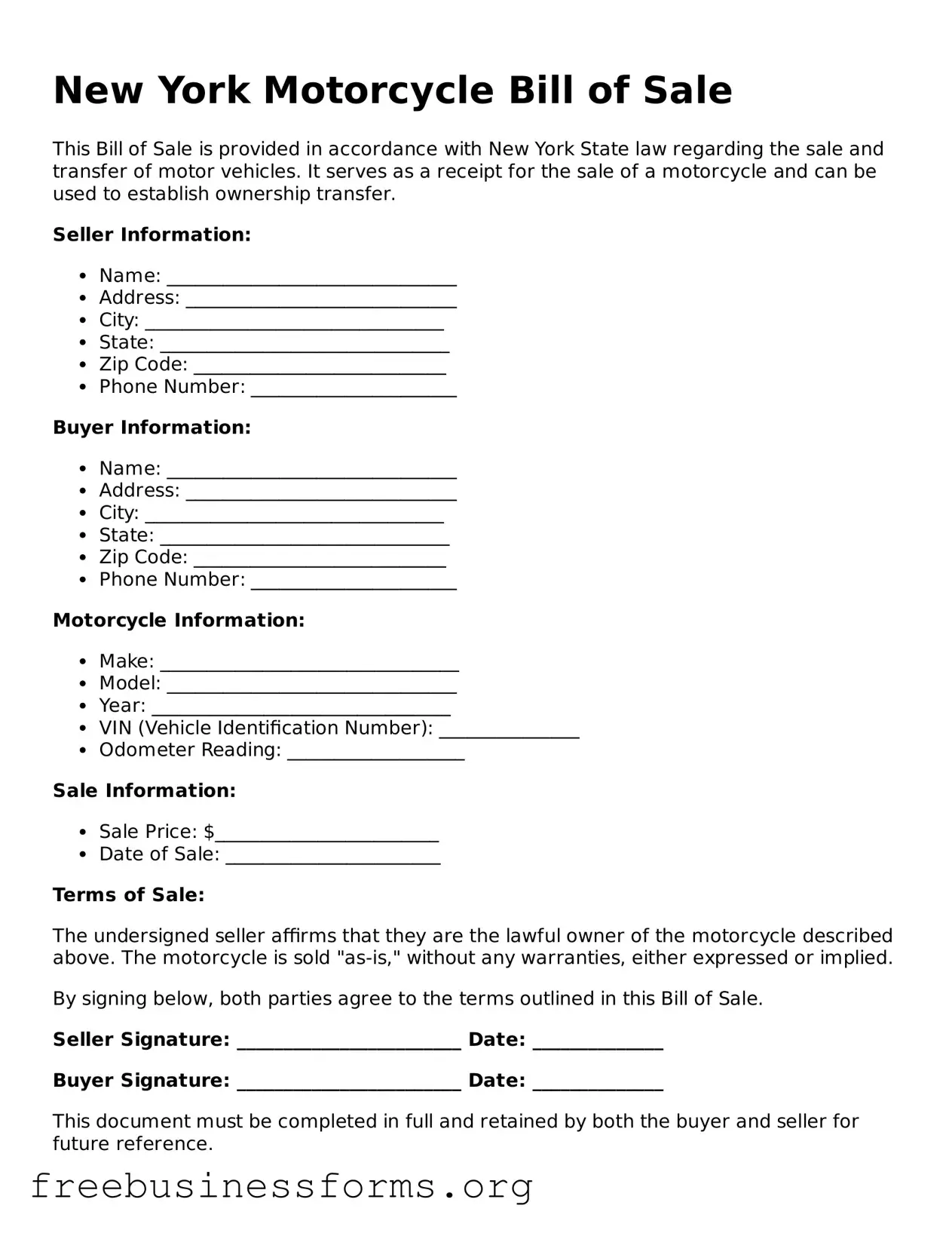Blank Motorcycle Bill of Sale Template for New York
The New York Motorcycle Bill of Sale is a legal document that records the transfer of ownership of a motorcycle from one party to another. This form serves as proof of the transaction and includes essential details such as the buyer's and seller's information, motorcycle description, and sale price. Properly completing and retaining this document is crucial for both parties involved in the sale.
Open Form Here

Blank Motorcycle Bill of Sale Template for New York
Open Form Here

Open Form Here
or
↓ PDF File
Quickly complete this form online
Complete your Motorcycle Bill of Sale online quickly — edit, save, download.